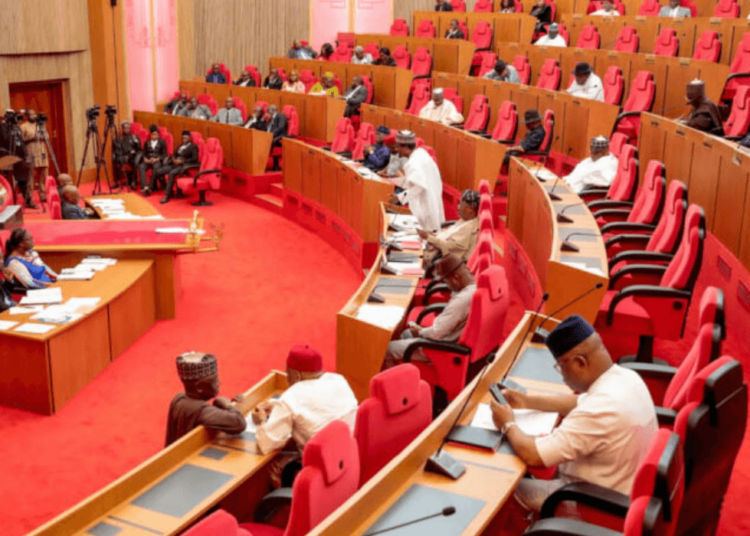Senate Passes Tax Reform Bills, Approves Renaming of FIRS to Nigeria Revenue Service

The Nigerian Senate has passed two key tax reform bills proposed by President Bola Tinubu’s administration, marking a significant step in the ongoing effort to modernize and strengthen the country’s tax administration system.

The bills, Nigeria Revenue Service (Establishment) Bill, 2025 and the Nigeria Tax Administration Bill, 2025 were passed during plenary on Wednesday following the presentation of the report by the Senate Committee on Finance, chaired by Senator Sani Musa.


One of the focal points of the reform is the renaming of the Federal Inland Revenue Service (FIRS) to the Nigeria Revenue Service (NRS). Under the new law, the agency will operate with enhanced authority and structure aimed at increasing transparency and improving compliance.
The Senate also retained the existing 7.5% Value Added Tax (VAT) and approved a new revenue-sharing formula that entitles the Federal Government to 10% of total VAT revenue, while States will receive 55% and Local Governments 35%. This marks a shift from the previous structure where the Federal Government received 15%, and states received 50%.

Additionally, the legislation redefined the concept of “derivation” by introducing the “place of consumption” principle. This means that VAT generated from goods and services will now be allocated to the state where the product is consumed, rather than where it was produced or sold.
The Senate also approved the establishment of a Tax Appeal Tribunal to handle disputes and ensure a more efficient resolution mechanism within the tax system. Provisions were also made for strict penalties for non-compliance, including a fine of ₦10,000 for individuals and ₦100,000 for companies that fail to present relevant records. More serious infractions, such as failure to remit tax deducted at source, could lead to imprisonment of up to three years.
Furthermore, the Senate maintained the Company Income Tax (CIT) rate at 30%, and sustained funding allocations through the Development Levy to key national institutions as follows:
Tertiary Education Trust Fund (TETFUND) – 50%
Nigerian Education Loan Fund (NELFUND) – 15%
National Information Technology Development Fund (NITDA) – 10%
National Agency for Science and Engineering Infrastructure (NASENI) – 10%
National Cybersecurity Fund – 5%
Defence Security Fund – 10%
The passage of these bills represents one of the most comprehensive overhauls of Nigeria’s tax system in recent years and aligns with President Tinubu’s economic reform agenda aimed at increasing non-oil revenue and improving fiscal sustainability.
The bills will now be forwarded to the House of Representatives for concurrence before being transmitted to the President for assent.

